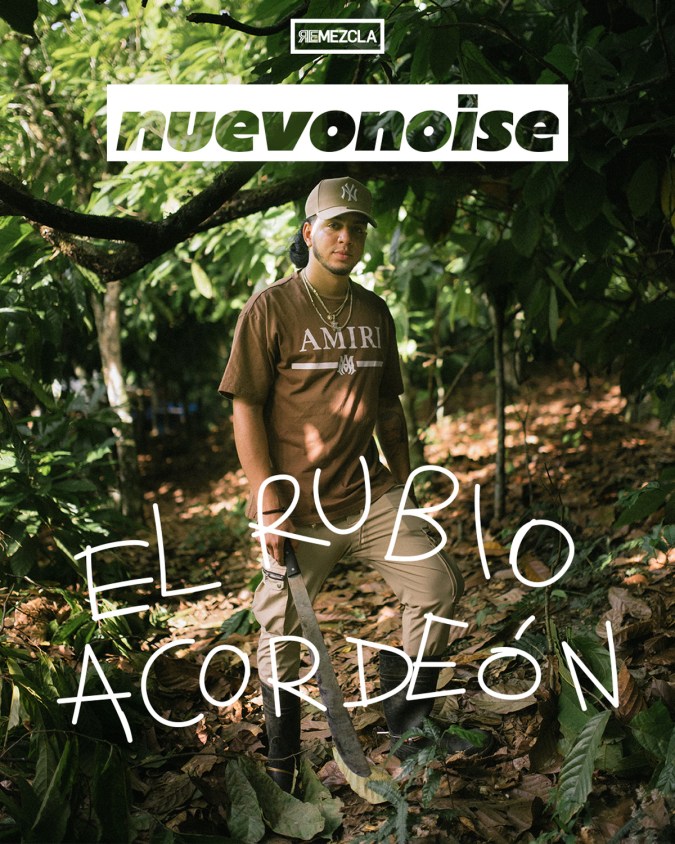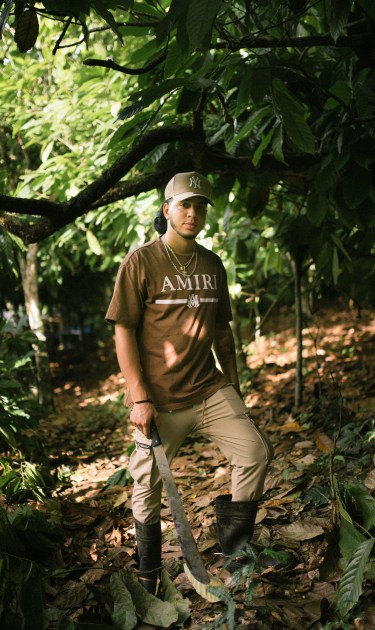It’s an idyllic summer afternoon in Santiago de los Caballeros, the Dominican Republic’s second city and the heart of El Cibao. The sun is setting on family day at El Club de los Choferes — a recreational space for members of the regional drivers union — and revelers of all ages are splashing gleefully in the pool, as well as cutting a rug to the undeniable gallop of merengue típico. While the lineup includes effervescent local ensembles and an uproarious DJ blasting dembow and bachata edits, the soirée finally gets its dose of star power with the arrival of rising merengue phenom El Rubio Acordeón. Wearing flashy yellow Jordans, a Chicago Bulls fitted cap, and an iced-out neck, he’s escorted to the stage by a crowd of security staff and fans, causing a scene reminiscent of a prophet guiding believers. With his orange and gold accordion in hand and flanked by a fleet of percussionists ready to pummel their instruments, the 25-year-old live wire led the roaring crowd through a rapturous set that would leave even the most agnostic heeding scripture.
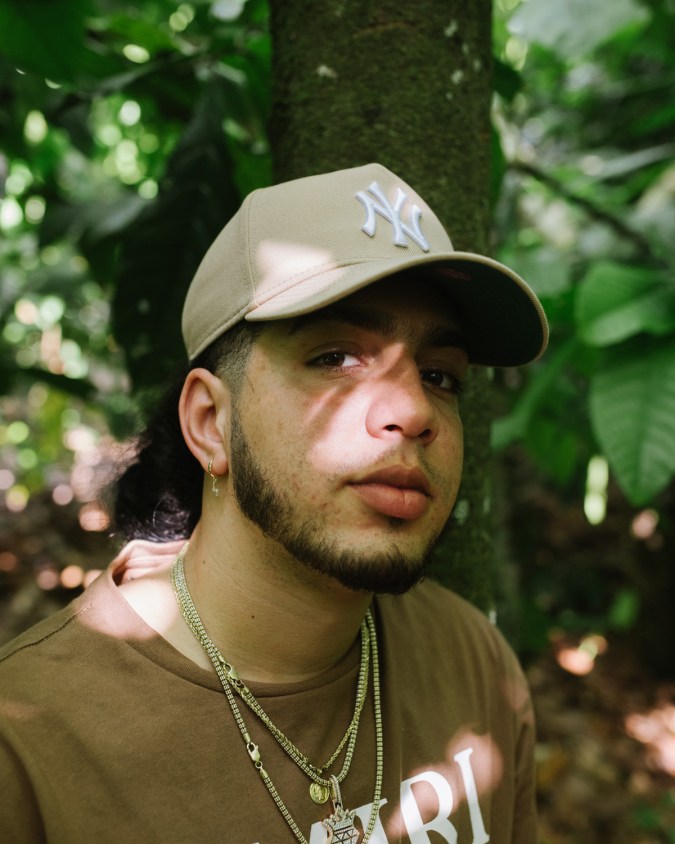
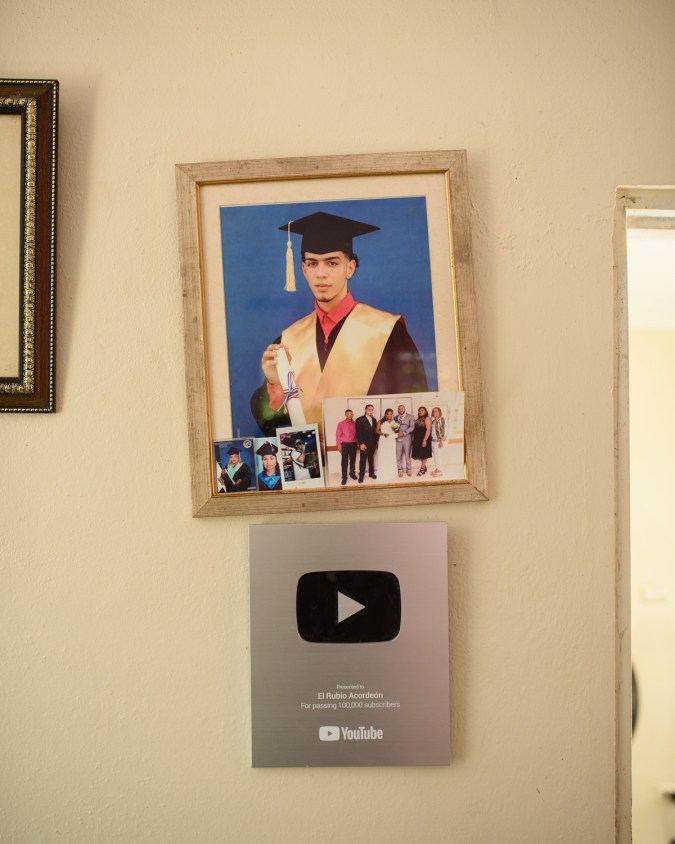
The next day, Remezcla caught up with El Rubio Acordeón at his cacao farm, just outside the city of San Francisco de Macorís, where he grew up surrounded by horses, goats, and verdant fronds. He still looks fresh, this time dressed in a palette of earth tones and a New York Yankees cap paired with terrain-appropriate rubber boots and a machete. His success as one of the country’s buzziest young merengue talents has come with its rewards, maintaining an almost daily performance schedule that enabled him to purchase neighboring plots of land. It’s a timely reminder that merengue was born and honed in Dominican campos, and that as global superstars like Bad Bunny, Karol G, and Rosalía spark conversation for dabbling in the genre, this music remains intrinsically linked to the land that birthed it.
“El Rubio Acordeón comes from a very humble campo, working in agriculture since childhood,” says the singer and multi-instrumentalist born Enmanuel García. “My grandparents raised me, and my uncles played güira and tambora. By the time I turned 18, I felt my own calling towards music, specifically in música urbana, but also the merengue that represents us as Dominicans. My love for música típica led me to the accordion, and as I practiced, I began performing at events around El Cibao. Eventually, I moved to Santiago to immerse myself completely in típico and study under Lupe Valerio,” he adds, referencing the master accordionist whose previous apprentices include El Prodigio and La India Canela.

In a prior interview with Remezcla, merengue típico icon Fefita La Grande underscored the rural and distinctly non-academic nature of the genre, stripping the brassy big band trappings of mainstream merengue down to a holy trinity of accordion, güira, and tambora. El Rubio honors these traditions while unafraid to innovate. His live band breaks with acoustic austerity by featuring electric bass and keys that amplify the thump of every show. He’s also fallen in league with a generation of merengue stars captivating younger audiences on the stage and social media — from the jovial earworms of El Blachy, Rubali Valerio, and Urbanda, to 2023 viral meme queens Nelly Swing and La Inquieta.
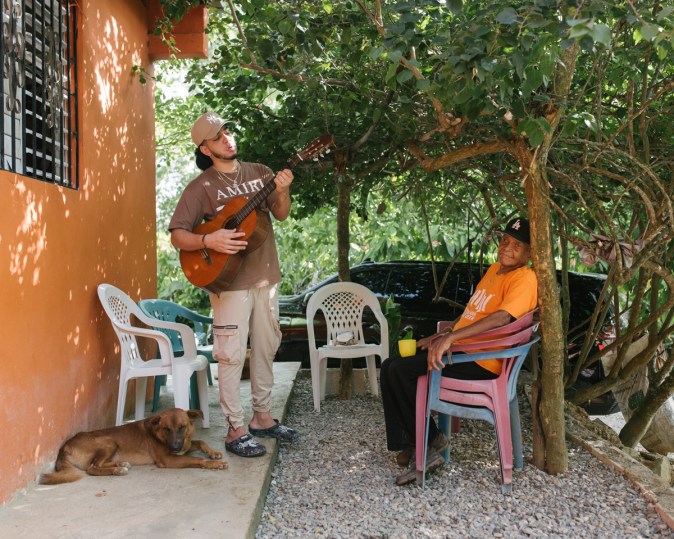
The gifted accordionist and songwriter also crosses genre lines with ease, linking with dembow star Chimbala last year for the Santiago anthem “10 Muchacho,” and recently teasing a crossover with rising tongue-twister Lomiiel. Last month, El Rubio released a merengue de calle titled “Te Mentiría,” loaded with drum machines and ukulele, which he says is part of a new album that will dip into trendy hybrids of corridos and cumbia. But perhaps his most head-turning collaborator thus far is reggaeton superstar Ozuna, who, after some DM exchanges, decided to hop on “La Propuesta,” a Rubio-penned merengue típico boosted by the Domi-Boricua singer’s silky pop croons.

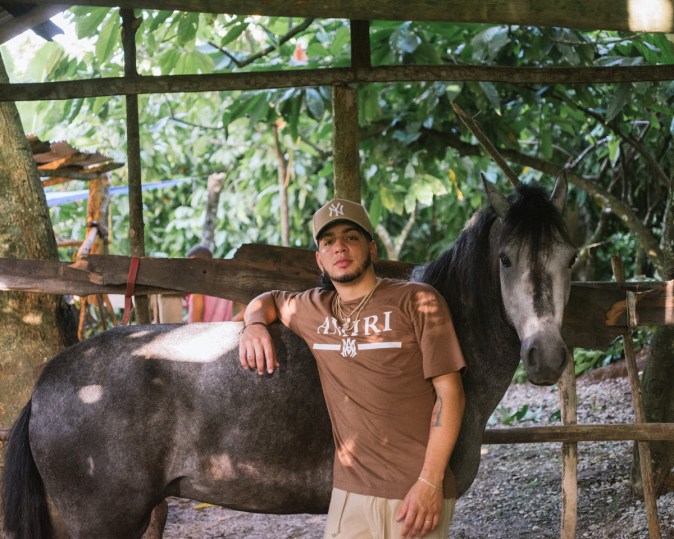
“When I sent Ozuna the song, he just said, ‘Oye papi, that’s it, that’s the one!’” remembers El Rubio with a chuckle. “We did it from the heart, and it was a great match. But culturally, these genres make sense together because they belong to the Dominican Republic. I brought that urbano flow into merengue with the hats and the sneakers, and it worked. Young people and urbano artists have been very supportive of música típica, and now we’re reaching a lot more people.”
It’s not necessary to compare who’s more famous, plays more often, or is making more money. As professionals, we need to put arrogance aside and celebrate this moment for típico.
With a rejuvenated merengue wave on the zeitgeist’s lips, El Rubio Acordeón is ready to take the joy of típico global. His summer agenda is stacked with shows across the island, while tours of the U.S. and Europe have been announced for September and October. If your city isn’t on his route, follow the singer on social media, where countryside antics and charitable activations deepen and contextualize the heartwarming charm behind his music. And even as hype stirs around him, El Rubio’s mission remains a perfect balance of honoring Dominican roots and fostering collectivity at the gates of a decisive new chapter for merengue.

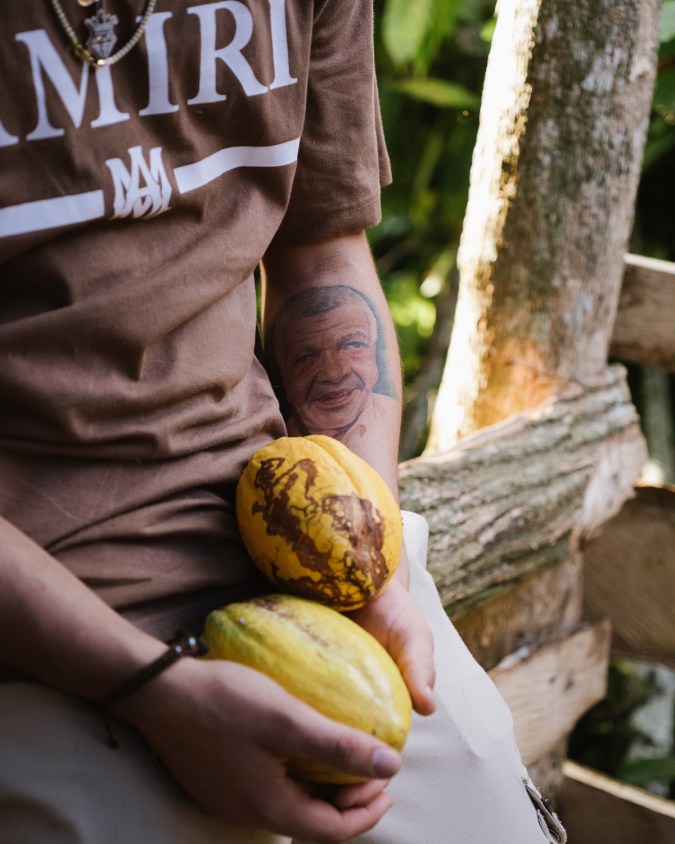
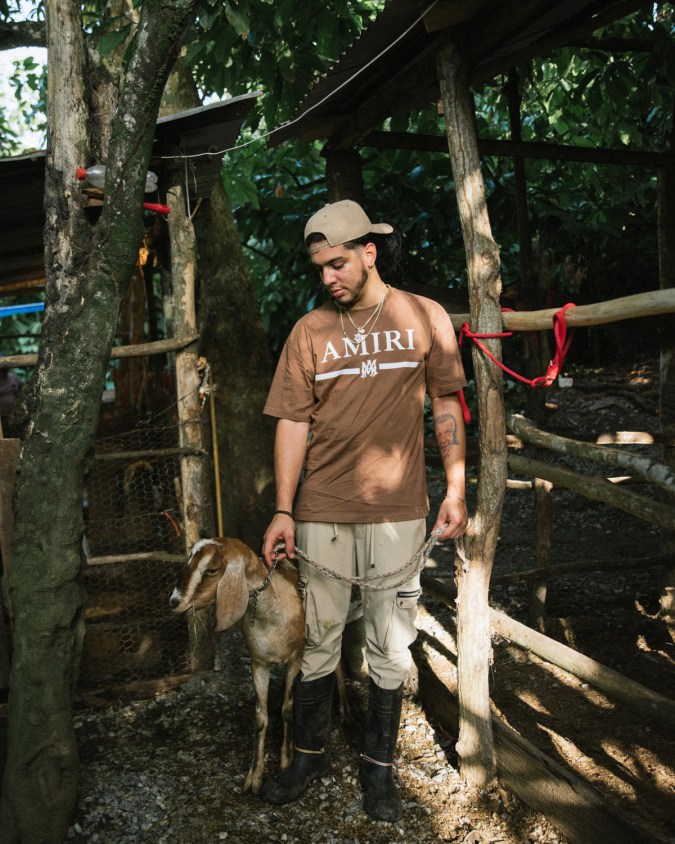
“I’ve always kept an outstretched hand, but a lot of people in típico are starting to see me as competition,” he says. “I don’t think it should be that way. It’s not necessary to compare who’s more famous, plays more often, or is making more money. As professionals, we need to put arrogance aside and celebrate this moment for típico. I think [my success] is the first step of many.”
“Fefita took this music to the top, but there are always new mountains to climb.”

Photography: José Rozón
Written By: Richard Villegas
Spanish Translation: David Taveras
Editor in Chief: Thatiana Diaz
Music Editor: Alexis Hodoyán-Gastélum
Creative Director: Alan López
Social Media Manager: Alma Sacasa
Director of Talent Relations & Executive Producer: Joel Moya
Special thanks to Dominicana Music Week, José Guillermo Saleta (Saleta Group) & Wilkin Tatis
